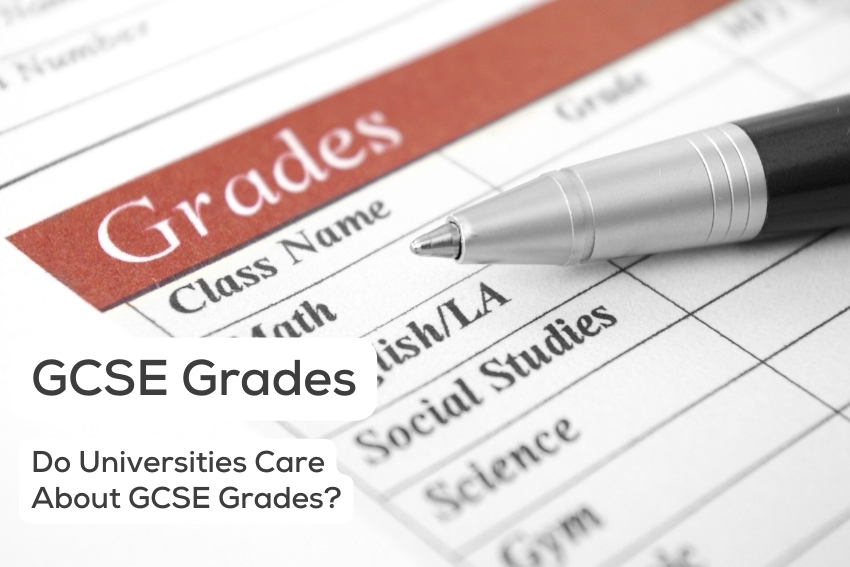GCSE Economics – Everything You Need to Know
In the intricate world of education, GCSE Economics stands as a gateway to understanding how the cogs of our financial systems turn. From the bustling marketplaces to the quiet decision-making in governmental halls, Economics shapes our everyday lives, and GCSEs serve as the stepping stone. Whether you’re a parent eager to support your child’s academic journey or someone intrigued by the ever-changing economic landscape, this comprehensive guide is here for you.
We’ll explore the essential topics covered in the GCSE Economics syllabus, delve into the grading scheme, and unravel common difficulties students face. Along the way, we’ll also provide invaluable insights into exam preparation and the benefits of tailored tuition. So, fasten your seatbelt as we journey through the world of GCSE Economics, a subject not just confined to textbooks but echoing in every pound spent and saved.
Understanding GCSEs
GCSEs, a crucial phase in the British education system, lay the groundwork for a student’s future pursuits in academia and career alike. But what sets GCSE Economics apart from other subjects?
At this stage, students are often exploring their interests, identifying strengths, and contemplating career paths. GCSE Economics provides an opportunity to delve into the fundamental principles of supply and demand, fiscal policies, and market dynamics, principles that govern not only business environments but our daily lives as well.
In the broader spectrum of GCSE subjects, Economics serves as a bridge between mathematical analysis and real-world applications. Students learn to interpret data, evaluate economic models, and gain insights into how global economies function and fluctuate.
By choosing GCSE Economics, students embark on a path that cultivates critical thinking, problem-solving, and an understanding of the economic forces that shape our world. Whether they pursue further studies in Economics or use this knowledge as a foundation for other fields, the insights and skills garnered here remain invaluable.
GCSE Economics Grading Scheme
Navigating the realm of GCSE Economics means understanding not just the concepts and applications, but also how achievement in this subject is measured. The GCSE Economics grading scheme, familiar yet nuanced, plays a vital role in translating a student’s effort into tangible results.
The grades in GCSE Economics range from the highest achievement, a Grade 9, down to a Grade 1, with a U indicating ungraded. But what do these letters and numbers reveal about a student’s understanding of economics?
- Grade 9 to 7 (A to A in the previous system):* Mastery of complex economic principles, excellent critical thinking, and precise application in various contexts.
- Grade 6 to 5 (B to high C in the previous system): Strong understanding of key topics with good analytical abilities, reflecting a well-rounded grasp of GCSE Economics.
- Grade 4 (standard pass, equivalent to a C): Adequate knowledge and application, meeting the required standards for progression.
- Grade 3 to 1 (D to G in the previous system): Increasing levels of difficulty with economic concepts, indicating areas for improvement.
- Grade U: Ungraded, highlighting a need for further support and study.
These grades are not merely letters on a page; they represent the spectrum of understanding and capability in GCSE Economics. They guide future academic choices and even employment opportunities.
What’s more, the grading scheme emphasises not just the end result but the journey towards understanding economic concepts, problem-solving, and making connections to real-world scenarios.
For parents, the grading scheme offers insight into their child’s strengths and areas for growth, helping to tailor support accordingly. It is more than a system; it’s a roadmap guiding each student’s unique journey through the multifaceted world of economics.
Key Topics in GCSE Economics
GCSE Economics is more than a subject; it’s an exploration of the principles and forces that drive markets, governments, and individual behaviours. For students embarking on this intellectual journey, understanding the key topics in GCSE Economics is essential. Here’s an overview:
Supply and Demand
The fundamental building blocks of economics, where students learn how price and quantity are determined in various markets. Learn economics foundations here.
Microeconomics
A close examination of individual consumers and firms, including concepts such as:
Elasticity
Consumer Behaviour
Various Market Structures
Macroeconomics
A broader view of economics, focusing on aggregate issues like:
Inflation
Unemployment
Fiscal Policy
Economic Growth
Global Economics
Exploration of international trade, exchange rates, and the impact of globalisation, providing students with a worldly perspective.
Government Policies and Economic Objectives
Insight into how governments use fiscal and monetary policy to achieve goals like:
Stability
Growth
Redistribution of Income
Economic Indicators
Understanding key indicators such as:
GDP
Inflation Rates
Unemployment
Personal Economics
A look at personal finance, savings, investments, and financial planning, bridging the gap between theoretical economics and practical life decisions.
These topics provide a comprehensive view of the economic landscape, from the individual’s decision-making processes to the broader strokes of governmental policies. Each one offers a different lens through which to view and analyse the world around us.
GCSE Economics also fosters a set of invaluable skills. Analytical thinking, problem-solving, and critical evaluation are nurtured through the study of these key topics. As students delve into economic theories and their real-world applications, they cultivate a perspective that extends beyond the classroom, providing them with tools to understand and navigate the complex economic world in which we all live.
Whether a student aims to pursue a career in economics, business, politics, or simply wants to be an informed citizen, these key topics in GCSE Economics serve as a foundational compass guiding their exploration.
Common Difficulties Encountered
Every educational journey comes with its unique set of challenges, and GCSE Economics is no exception. Understanding these common difficulties can aid both students and parents in navigating the complex world of economics. Here’s an overview of some of the hurdles students often face:
Understanding Complex Concepts
Applying Theories to Real-World Scenarios
Translating abstract economic theories into real-world applications can be daunting. Understanding how supply and demand shift with market changes or how government policies impact the broader economy may seem abstract at first.
Grasping Mathematical Models
Some students find the mathematical aspects of economics, such as graphs and equations, challenging to understand and apply.
Time Management in Examinations
GCSE Economics exams often require a balance between precision and speed. Knowing how to allocate time effectively to different questions can be a challenge.
Writing Skills
Economics is not just about numbers; it involves explaining complex ideas in writing.
Articulating Arguments Clearly
Forming cohesive arguments and communicating them effectively in essays requires practice and understanding.
Structuring Answers
Organising answers in a logical sequence can be challenging, especially under exam conditions.
Linking Topics Together
Economic concepts are often interrelated. Understanding how microeconomics relates to macroeconomics or how global trends affect local markets requires a deeper level of thinking and connection.
Emotional Challenges
Stress and Anxiety
The pressure to perform can lead to stress, affecting both preparation and performance.
Lack of Confidence
Struggling with specific topics can diminish a student’s self-confidence, impacting their overall performance.
Understanding these challenges doesn’t just shed light on what might go wrong but offers an opportunity for targeted support and intervention. Whether it’s seeking additional tutoring, spending extra time on complex topics, or practising exam techniques, recognising these common difficulties in GCSE Economics can be the first step towards overcoming them.
For parents, being aware of these challenges can lead to more empathetic support and guidance. It’s a shared journey, and understanding these common difficulties encountered in GCSE Economics creates a path for collaboration and success.
Sample Exam Questions


Navigating the world of GCSE Economics requires not only understanding the key concepts but also applying them in various contexts. Here are some sample exam questions to give students and parents a glimpse of what to expect:
Question 1: Supply and Demand
The price of apples falls, leading to an increase in the quantity demanded. Explain the economic principle behind this scenario, and sketch a graph to illustrate your answer.
Question 2: Inflation
Describe the potential effects of high inflation on both consumers and producers within an economy. Provide examples to support your explanation.
Question 3: Government Intervention
Discuss two methods by which a government might intervene to reduce income inequality within a country. Analyse the possible advantages and disadvantages of each method.
Question 4: International Trade
Explain the concept of comparative advantage and how it underpins international trade. Use a real-world example to demonstrate your understanding.
Question 5: Economic Growth
Evaluate the impact of economic growth on the environment. Consider both positive and negative aspects in your answer.
Question 6: Unemployment
Define the term “structural unemployment” and discuss the possible causes and consequences within a specific region or country.
Question 7: Fiscal Policy
Describe how fiscal policy can be used to combat recession. Include an analysis of potential side effects or limitations.
Question 8: Personal Finance
Explain the importance of budgeting and saving for individual financial stability. Provide practical examples to illustrate your points.
These sample questions offer a snapshot of the breadth and depth of topics covered in GCSE Economics. They mirror the kind of critical thinking, analysis, and real-world application that students will be expected to demonstrate in their exams.
For those seeking to excel, using these questions as a starting point for study and practice can provide valuable insights into the exam structure and the type of content that may be covered. It’s not just about knowing the answers but understanding the underlying principles and being able to apply them in various contexts.
Advanced Sample Exam Questions
Question 9: Exchange Rates and International Trade
Evaluate how a significant appreciation of the national currency might affect a country’s balance of trade. Include both theoretical perspectives and real-world examples in your analysis.
Question 10: Market Failure
Discuss the concept of negative externalities and how they can lead to market failure. Use a real-world example of pollution to explain potential government interventions, including the evaluation of their effectiveness.
Question 11: Income Elasticity of Demand
Calculate and interpret the income elasticity of demand for a luxury good, given the percentage change in quantity demanded and percentage change in income. Discuss what this implies about consumer behaviour towards the good.
Question 12: Monetary Policy and Economic Cycle
Critically evaluate the effectiveness of using monetary policy to control inflation during different stages of the economic cycle. Include an analysis of potential conflicts with other macroeconomic objectives.
Question 13: Game Theory and Oligopolies
Apply the concept of game theory to analyse the strategic interactions between firms in an oligopolistic market. Include a discussion of the Nash equilibrium and how it might affect pricing strategies.
These advanced questions reflect a deeper level of understanding required in GCSE Economics, challenging students to critically evaluate, analyse, and apply complex economic principles. They are not only about recalling facts but also synthesising information, constructing arguments, and demonstrating the ability to think like an economist.
For students aiming for the top grades, these questions offer an opportunity to stretch their thinking and prepare for the rigorous demands of the GCSE Economics examination. Practice, perseverance, and targeted support can transform these challenging questions into achievable goals, opening doors to further academic success and real-world understanding.
Overview of the GCSE Economics Marking Scheme
Understanding the GCSE Economics marking scheme is vital for both students aiming to excel and parents supporting their learning journey. It demystifies the way examiners evaluate answers and offers insights into what is expected in terms of content, structure, and analysis. Here’s a breakdown:
Knowledge and Understanding (KU)
This area assesses the student’s grasp of economic concepts, principles, and theories.
- Level 1 (Basic Understanding): Simple recall of facts, definitions, and terms.
- Level 2 (Clear Understanding): Demonstrating comprehension of more complex ideas and linking them together.
- Level 3 (In-depth Understanding): Applying concepts to real-world situations, making connections between topics, and critically evaluating ideas.
Application and Analysis (AA)
This part of the marking scheme looks at how students apply their knowledge to real-world scenarios and analyse economic situations.
- Level 1 (Basic Application): Simple application of economic principles to given situations.
- Level 2 (Clear Application): Effective use of examples and a clear understanding of the application of theories.
- Level 3 (In-depth Application): Critical analysis, integration of multiple concepts, and evaluation of contrasting viewpoints.
Evaluation (EV)
This assesses the student’s ability to critically evaluate different economic theories, viewpoints, policies, and data.
- Level 1 (Basic Evaluation): Simple statements of opinion without substantial backing.
- Level 2 (Clear Evaluation): Supported judgments with evidence and clear rationale.
- Level 3 (In-depth Evaluation): Comprehensive, well-argued evaluation, considering various perspectives and drawing insightful conclusions.
Communication (COM)
This evaluates the clarity, structure, and presentation of the student’s answers.
- Level 1 (Basic Communication): Simple and clear, but limited in scope.
- Level 2 (Clear Communication): Well-structured, logical flow with appropriate terminology.
- Level 3 (Effective Communication): Highly effective communication, with coherent structure, precise terminology, and engaging presentation.
These levels, often marked on a scale, contribute to the overall grade, reflecting the student’s competence in understanding, applying, analysing, evaluating, and communicating economic ideas.
Familiarity with this marking scheme can guide students in how they approach their studies and answer exam questions. It serves as a roadmap to what examiners are looking for, helping students focus their efforts more effectively.
For parents, understanding the marking scheme can provide valuable insights into the academic expectations placed on their children, enabling more targeted support and encouragement.
The GCSE Economics marking scheme isn’t just a grading tool; it’s a comprehensive guide to the skills and understanding that the course aims to develop. It’s an integral part of the learning journey, illuminating the path to success in this fascinating and ever-relevant subject.
Effective Revision Resources for GCSE Economics
GCSE Economics is a subject that combines theoretical understanding with real-world application. As such, effective revision requires a mix of resources and techniques that cater to both these aspects. Here’s a guide to help students and parents find the right balance:
Online Resources
Economics Textbooks and Guides
- CGP Revision Guides: These are tailored for GCSE Economics and provide concise explanations of key concepts.
- Edexcel Economics Student Book: Specific to the Edexcel exam board, offering in-depth coverage of the syllabus.
Educational Websites and Online Platforms
- BBC Bitesize: Offers interactive lessons, quizzes, and videos for GCSE Economics.
- Khan Academy: Features video tutorials on economics principles, aiding visual learners.
Past Exam Papers and Mark Schemes
- Exam Board Websites (AQA, Edexcel, OCR, etc.): Official past papers help students familiarise themselves with exam format and question types. You can find past papers on Edumentors’ website too.
Revision Techniques
Active Recall and Spaced Repetition
- Flashcards: Creating flashcards for key terms and concepts facilitates active recall.
- Spaced repetition software (e.g., Anki): Helps in memorising information over increasing intervals of time.
Connecting Theory with Real-World Economics
- News and Economic Reports: Following reputable financial news sources like The Economist helps connect classroom learning with current economic events.
- Economic Podcasts: Listening to podcasts from economists offers deeper insights into complex topics.
Practice and Self-assessment
- Timed Practice Papers: Simulating exam conditions helps improve time management and boosts confidence.
- Peer Review and Group Study: Engaging with peers can bring fresh perspectives and deeper understanding.
Visual Aids and Mind Maps
- Creating Diagrams and Charts: Visualising economic models and theories can aid comprehension.
- Mind Maps: Organising topics and making connections between them fosters better retention.
Apps and Tools
- Quizlet: Allows creating digital flashcards and quizzes for regular testing.
- Evernote: An excellent tool for organising notes, research, and reminders.
Local Libraries and Tutoring Services
- Library Economics Section: Often stocks various textbooks and revision guides.
- Specialised Economics Tutors: Personalised tutoring can be invaluable for addressing specific challenges and focusing on exam techniques.
The Benefits of GCSE Economics Tuition
In the rapidly evolving field of economics, the benefits of specialised GCSE Economics tuition extend beyond merely achieving a desirable grade. Personalised tuition in economics can offer unique advantages that foster not only academic success but also a profound understanding of the global economic landscape. Here’s an overview:
Personalised Attention and Customised Learning
- Tailored Approach: Each student’s understanding and approach to economics are unique. Personalised tuition allows lessons to be customised to individual learning styles and needs.
- Focused Attention on Difficult Topics: Economics can include complex theories and models. One-on-one tuition provides the opportunity to delve into these areas at the student’s pace.
Enhanced Understanding of Economic Concepts
- Real-World Application: Tutors with professional experience in economics can connect theoretical knowledge with real-world scenarios, enhancing understanding and interest.
- Complex Problem-Solving: Through interactive lessons, students can engage in complex problem-solving, mirroring the challenges economists face in real life.
Improved Exam Techniques and Confidence
- Exam Strategy Guidance: Experienced tutors can provide insights into exam techniques, time management, and marking schemes specific to GCSE Economics.
- Boosted Confidence: Regular feedback and targeted practice under a tutor’s guidance can build confidence, preparing students for the demands of the exam.
Flexibility and Convenience
- Flexible Scheduling: GCSE Economics tuition can be scheduled around other commitments, allowing for a balanced approach to study and life.
- Online Tuition Options: Many tutors offer online sessions, providing access to expert guidance without geographical constraints.
Subject-Specific Skill Development
- Critical Thinking and Analysis: Economics tuition emphasises the development of critical thinking, analysis, and evaluation – skills vital in many professional fields.
- Understanding Economic Trends: Regular engagement with a tutor keeps students abreast of current economic trends, fostering a lifelong interest in economics.
Long-Term Benefits
- Foundation for Further Study: The skills and knowledge gained through GCSE Economics tuition can serve as a solid foundation for A-Level, university studies, and professional careers in economics, finance, and business.
- Global Citizenship: Understanding economics helps in becoming informed global citizens, aware of economic policies, global markets, and international trade.
Investing in GCSE Economics tuition isn’t just an investment in a grade; it’s an investment in understanding a subject that shapes our world. It provides students with the tools to think like economists, equipping them with skills that are valuable not only in exams but in understanding the ever-changing economic landscape.
For parents, recognising these benefits and supporting their child through specialised GCSE Economics tuition can be a step towards not just academic achievement but personal growth and future success in an increasingly interconnected global economy.
A Path to Economic Mastery with Edumentors
In the thrilling and multifaceted world of economics, knowledge is not merely an academic pursuit but a passport to understanding the intricate workings of our global society. Economics opens doors to critical thinking, ethical considerations, and strategic planning, tools that can be applied across all areas of life. The journey through GCSE Economics is an invitation to explore these landscapes, nurturing a profound connection with the subject that goes beyond grades.
As parents and students traverse this enriching path, finding the right support can make all the difference. That’s where Edumentors comes into play. More than just an online tutoring platform, Edumentors represents a community of excellence, a network of dedicated and passionate tutors who themselves have walked this path, excelling at top UK universities.
Whether it’s mastering the complex theories, delving into real-world applications, or navigating the challenging exam landscape, the handpicked tutors at Edumentors are more than equipped. They are partners in the educational journey, always available to provide the tailored guidance, encouragement, and insight that foster success.
Embrace the adventure. Discover the world of economics. Become part of the Edumentors community. The path to economic mastery begins here.










